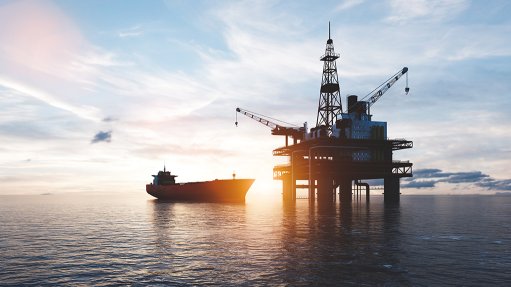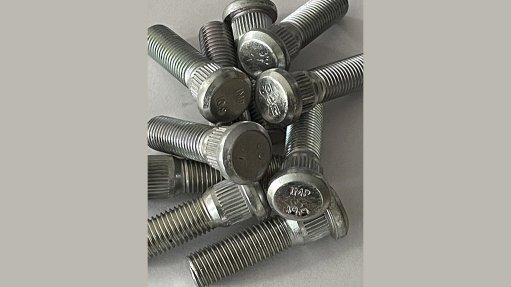2020: the year of the IMF bail-out?
The year 2020 is the Year of the Rat. This is according to the Chinese zodiac – the Chinese believe that the rat signifies wealth and surplus. In South Africa, 2020 is anticipated to be the polar opposite of what the Chinese expect it to be. In all probability, this year will be the Year of the International Monetary Fund (IMF) Bail-Out.
In case you are thinking of looking up what the financial media refers to as an ‘IMF bail-out’, there simply is no definition for this term. This seems odd, since bailing countries out is one of the things that the IMF does. The Bretton Woods institution extends financial support to a country facing a potential bankruptcy threat, usually in the form of loans. In this sense, the IMF is the ‘lender of last resort’. It should, in effect, be called the ‘International Lender of Last Resort’. However, owing to the stigma attached to seeking help from the IMF, governments are reluctant to do so and tend to go to great lengths to avoid taking that course of action.
But an IMF bail-out for South Africa – is it likely to happen? Yes, it might well come to this. Why? In a word, ‘accumulation’ – an accumulation of consistent dreadful news and dreadful economic performance. The country’s State-owned enterprises (SOEs) are a significant contributor to the persistent poor performance. And the reason is simple – one does not have to be mathematically inclined to be able to tell that, when expenditure exceeds income, then there is a problem. South Africa’s SOEs have become a significant and unsustainable financial drain on the economy. Simply put, SOEs do not contribute to government’s coffers.
Government itself does not generate any financial resources. If ever you attended an introductory course in economics, you would have learned that government essentially derives its revenue through imposing taxes. Governments can also generate revenue from SOEs, but in South Africa’s case the converse is true – the South African government tends to bail its SOEs out instead of generating a return, or revenue, from them. In other words, in recent times, the South African government has not been able to “get bang for its buck”, as Americans say.
Governments are supposed to create an environment in which business can flourish, but should not themselves be involved in business. Also, ‘civil servants’, who are now commonly called ‘government officials’, are supposed to serve the taxpayer, not their own business interests. As a rule, government officials should not be in business, and definitely not do business with government.
That the South African economy is tinkering on the verge of collapse is obvious. Forget all the fashionable scenario planning of differing roads or path, or levels of elevation. There are no longer good and bad scenarios – it is now bad, worse and worst scenarios.
Understanding government finances is not different to understanding the finances of a business. A business needs to make money. If it does not make money – and incurs losses – it can borrow money (from various sources) or get investors to invest in the business. If it is a good business, but with bad management, then the business’s shareholders can simply remove the management. Or, if all else fails, the creditors of the business can request their money back; if the money is not forthcoming, the business may be placed under business rescue or go bankrupt.
It is no different to the situation in which South Africa Incorporated finds itself. Its precarious state might well necessitate the engagement of the ‘International Lender of Last Resort’. Should this materialise, 2020 will be the Year of the IMF Bail-Out for South Africa.
Article Enquiry
Email Article
Save Article
Feedback
To advertise email advertising@creamermedia.co.za or click here
Press Office
Announcements
What's On
Subscribe to improve your user experience...
Option 1 (equivalent of R125 a month):
Receive a weekly copy of Creamer Media's Engineering News & Mining Weekly magazine
(print copy for those in South Africa and e-magazine for those outside of South Africa)
Receive daily email newsletters
Access to full search results
Access archive of magazine back copies
Access to Projects in Progress
Access to ONE Research Report of your choice in PDF format
Option 2 (equivalent of R375 a month):
All benefits from Option 1
PLUS
Access to Creamer Media's Research Channel Africa for ALL Research Reports, in PDF format, on various industrial and mining sectors
including Electricity; Water; Energy Transition; Hydrogen; Roads, Rail and Ports; Coal; Gold; Platinum; Battery Metals; etc.
Already a subscriber?
Forgotten your password?
Receive weekly copy of Creamer Media's Engineering News & Mining Weekly magazine (print copy for those in South Africa and e-magazine for those outside of South Africa)
➕
Recieve daily email newsletters
➕
Access to full search results
➕
Access archive of magazine back copies
➕
Access to Projects in Progress
➕
Access to ONE Research Report of your choice in PDF format
RESEARCH CHANNEL AFRICA
R4500 (equivalent of R375 a month)
SUBSCRIBEAll benefits from Option 1
➕
Access to Creamer Media's Research Channel Africa for ALL Research Reports on various industrial and mining sectors, in PDF format, including on:
Electricity
➕
Water
➕
Energy Transition
➕
Hydrogen
➕
Roads, Rail and Ports
➕
Coal
➕
Gold
➕
Platinum
➕
Battery Metals
➕
etc.
Receive all benefits from Option 1 or Option 2 delivered to numerous people at your company
➕
Multiple User names and Passwords for simultaneous log-ins
➕
Intranet integration access to all in your organisation

















